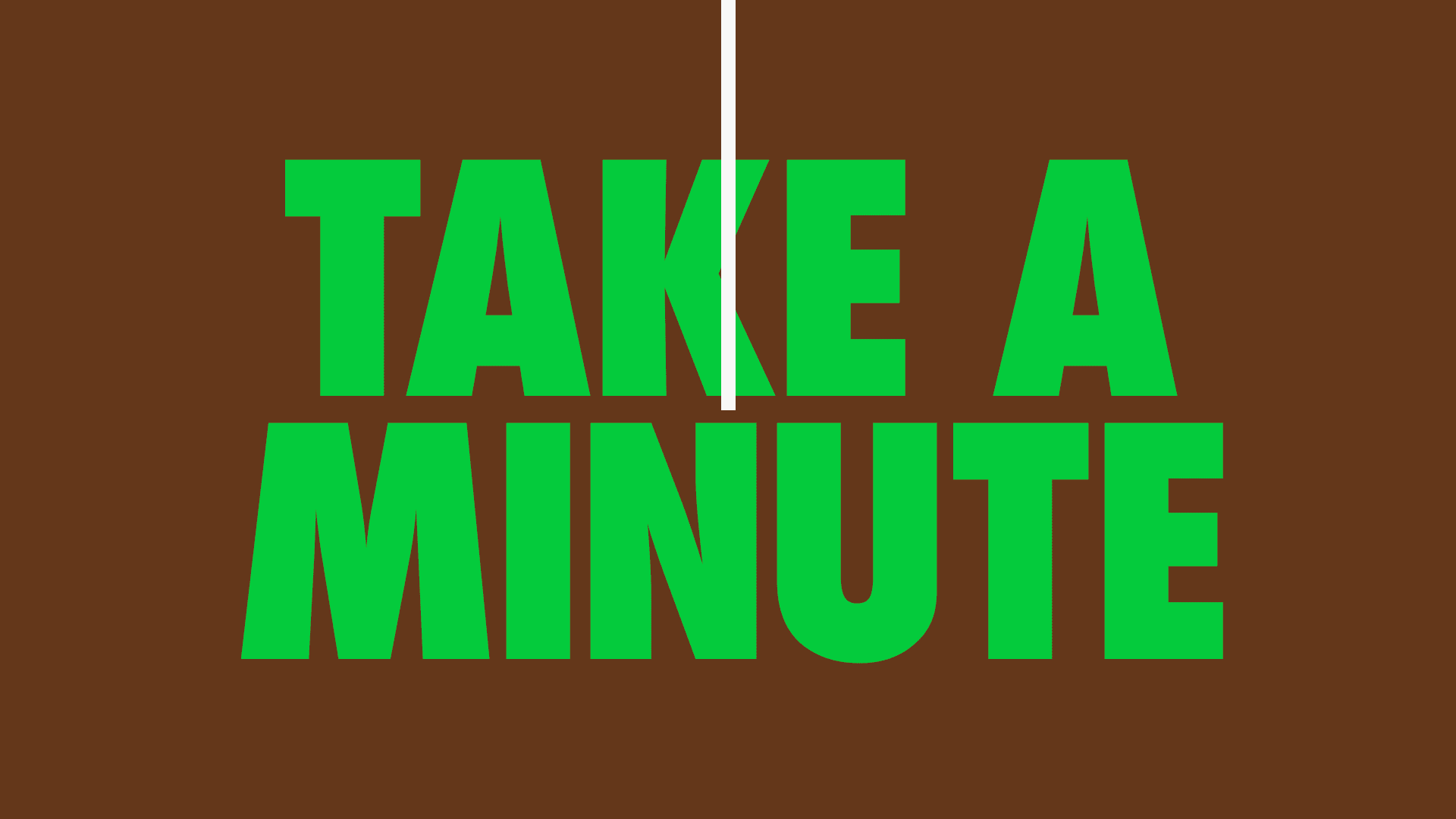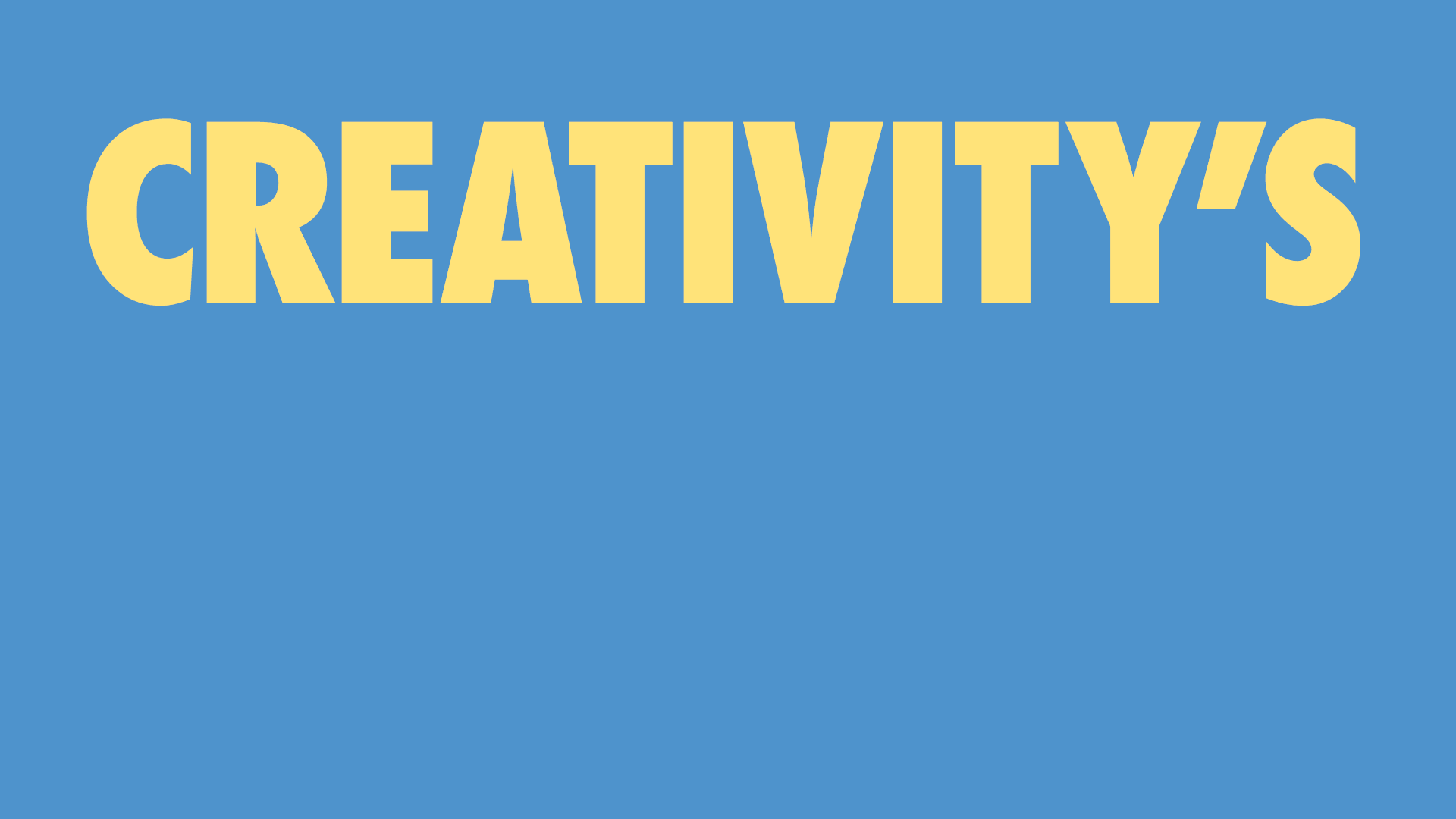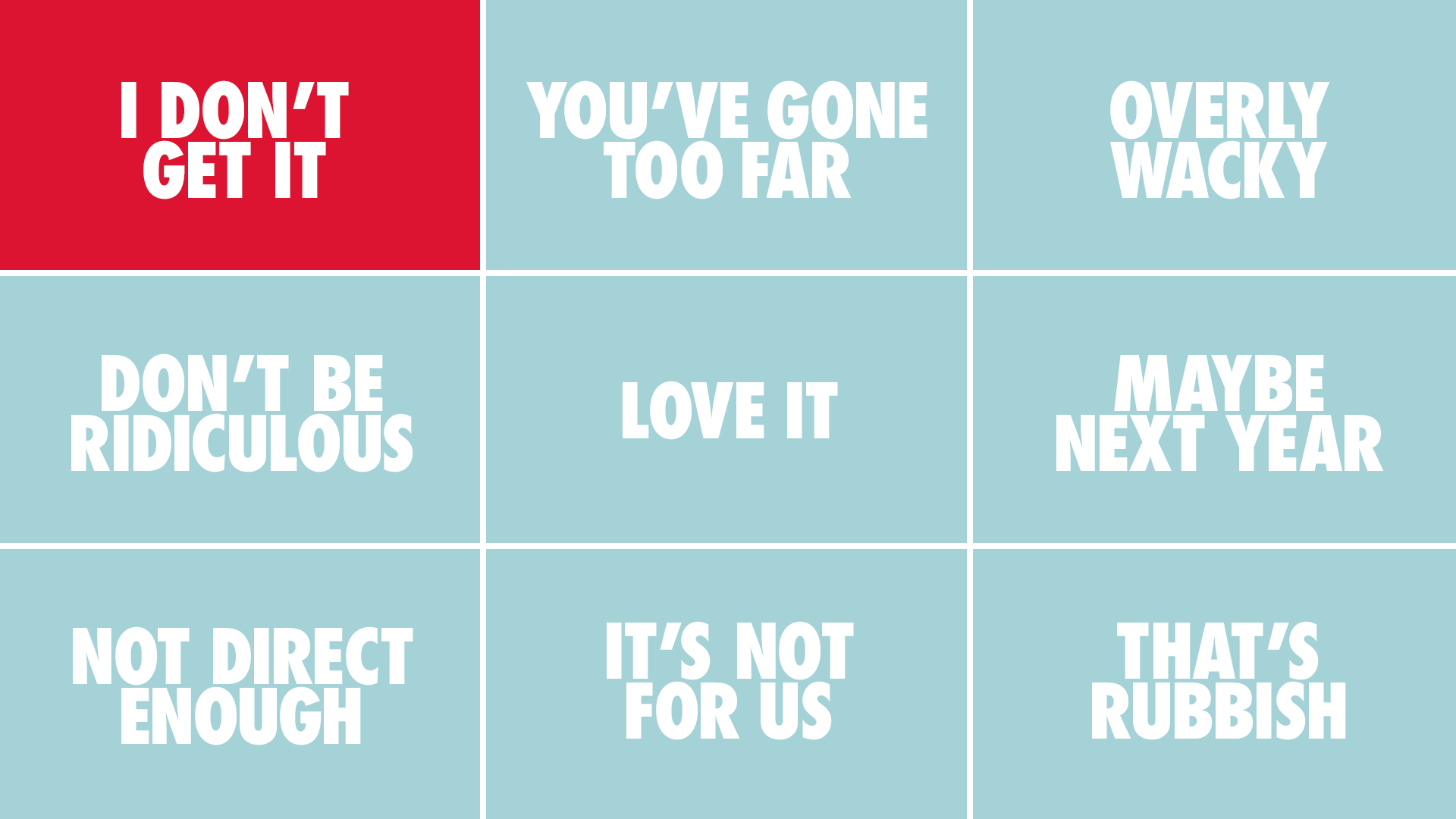Beating creative block.
Everyone gets stuck now and again. So it’s handy to prep for those moments before they arrive, saving inspiration and interesting creative kickstarters.
AI // Avoiding the bland.
Is AI the end of us? Should we all close our pads and pack our bags? Maybe, but only if we fail to educate how and where the tech should be used.
Creatives solve problems.
Creatives can find a problem with everything. Not just briefs but systems, processes or practises. But handily, they’re also very good at coming up with the solutions.
Student tips // 31 to 35.
Students, grads and juniors here’s another batch of tips for you. Have a read then pick and choose the ones that you think are most useful for you.
Train yourself to CD: Negotiate.
There’s a lot more management that people expect when they become a CD. Become a good negotiator, it’s one of the most useful skills you’ll ever learn.
Take a minute.
In a fast moving creative agency it’s incredibly important to take a little time to stop and think before you brief, amend and action.
Be action orientated.
The longer you have to work on a brief the more chance you have of creating something great. Or, at the very least, discover the problems in your way quicker.
AI // Is using it creative?
Is AI a help or a hinderance to great ideas? Can machine thinking replicate human creativity? It all depends on how we decide to use it.
Creativity’s about discovery.
Creatives should be able to find the new in anything and everything. Looking at brands, products and briefs with fresh eyes to bring fresh thinking.
Student tips // 26 to 30.
You don’t have to agree with all of these tips, but I’m sure there’s one thing in there that you’ll find useful if you’re a student, grad or junior.
Aim beyond the line.
‘The Line’ is the divide that splits the cliché, the fine, the acceptable from the good and the great. If you always try and stay on the right side your work will be more likely to surprise and interest.
How creative is creative?
Great creative means different things to different people. You have to know the boundaries and the level you’re starting from to push your work forward.
Train yourself to CD: Learn and learn.
Preparing yourself to become a Creative Director is something you can do throughout your entire career. Learn from every CD you serve under, both the good and the bad.
Create a pitch plan.
It’s very easy for a pitch to descend into late nights and lost weekends. You can stop, not all, but some of that happening by getting ahead of the presentation deck.
Train yourself to CD: Direction not dictation.
A lot of creative directors end up in that role without any training. If it’s a role you want in the future they are ways to prep for it. Start with giving book crits to learn ‘direction’.
Student tips // 21 to 25.
A few more tips for juniors, grads and students. Some watch-outs and to-dos that could be useful. Learn from my past mistakes.
Deliberately break it.
Dev is one of the hardest parts of a creatives job, taking something you’ve lovingly created and changing it. If you’re stuck then try destroying it completely.
Present from their shoes.
Not everyone thinks like a creative. Make sure you present in a way that everyone, whether left or right brain, will understand and love your work.
Make people notice.
Outside of the advertising industry bubble no-one really cares about ads. Except for your mam. Accept that and you can use it to create work that does get noticed.
Push boundaries.
You can’t just sit around and wait for the magic ‘great work’ brief to show up. Push on each brief and you can build for the future.



















